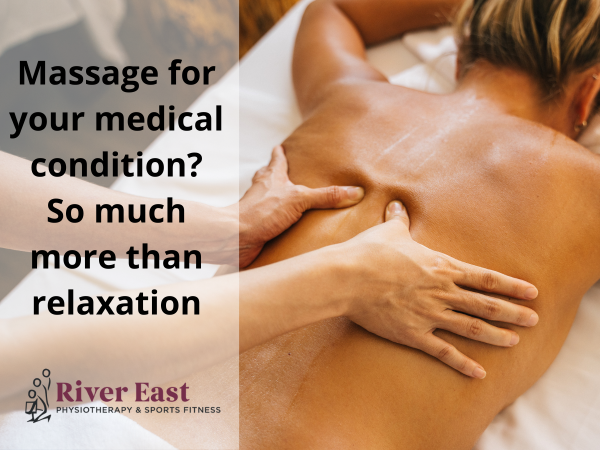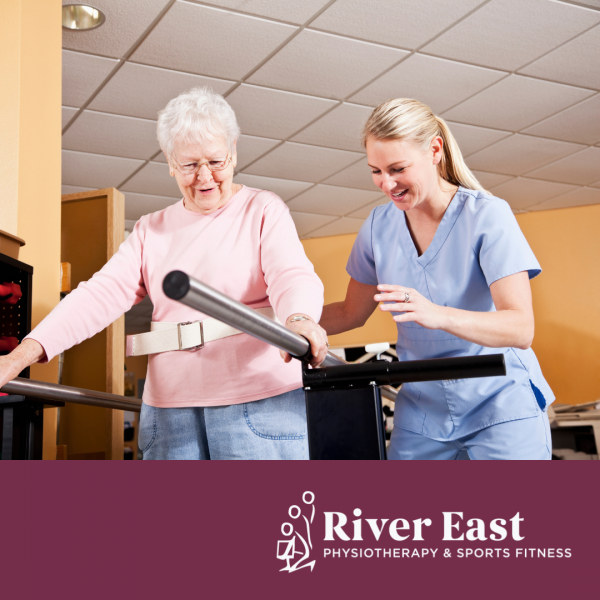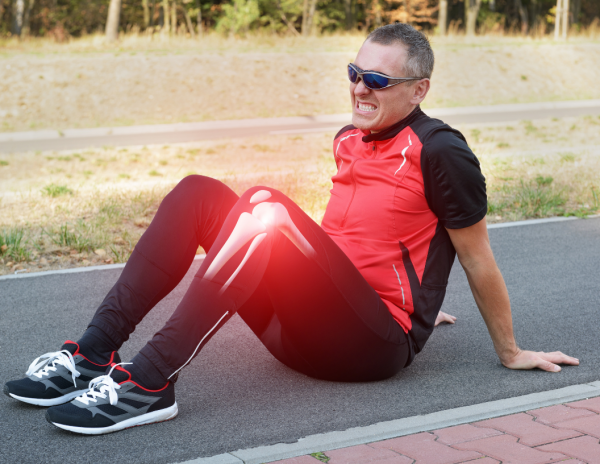It's Not Just Relaxation: Massage Can Treat Your Medical Condition

By Yulia Agarkov, Registered Massage Therapist at River East Physiotherapy & Sports Fitness Clinics.
I often have clients who come to me for a relaxation or 'wellness' type of massage. When we talk during massage session, a lot of them are surprised that massage therapy could contribute into treatment and management of many health conditions.
In this blog post, I’ll describe some health conditions that can benefit from registered massage therapy. These include:&nb...
Posted on 2024-04-06
The Crucial Role of Physiotherapists in Hip or Knee Replacement Surgery

Physiotherapists are uniquely positioned to get you moving again, safely, after hip and knee replacements. We’re also the best professionals to prepare you for surgery ("pre-habilitation") or to help you try to prevent surgery in the first place.
Not sure what you get when you start physiotherapy? While every person’s treatment is unique, this blog post summarizes all the benefits you can expect when you start a course of physiotherapy treatment at River East Physiotherapy.
1. Comp...
Posted on 2023-08-06
Using Your TENS Machine at Home? Six Things You Need to Know

Do you use a TENS machine to use at home? Owning a home TENS machine is more and more common, given the power of TENS to relieve pain. Having a TENS machine means you have one more drug-free pain relief technique to use between physiotherapy treatment sessions.
Our physiotherapists at River East Physiotherapy have extensive experience identifying which patients could benefit from TENS, what settings would be helpful, and what to do if something goes wrong. We often i...
Posted on 2023-08-04
5 Ways to Reduce Knee Pain from Osteoarthritis

So your doctor diagnosed you with having knee pain from osteoarthritis. You’re experiencing pain, stiffness and maybe even swelling. And you aren’t quite sure what to do next.
What is Knee Pain from Osteoarthritis, and Why Does It Matter?.
Osteoarthritis is a disease that affects more than 4 million Canadians, or 1 in 7 adults. According to the Arthritis Society, osteoarthritis is the “body’s failed attempt to repair damaged joint tissues.” This damage cou...
Posted on 2023-07-01
Top 5 Reasons to See a Physiotherapist

There are many different types of therapists out there. And to be honest, physiotherapists haven’t done a great job explaining to the public what the physiotherapy profession does. This blog post clarifies what physiotherapists do, and names the top five reasons you should see a physiotherapist:
1) You’re in Pain.
Popping a pill can sometimes relieve pain, but it’s rarely the only option. Physiotherapists specialize in drug-free pain relief. We have ...
Posted on 2023-06-21
Page 1 of 5